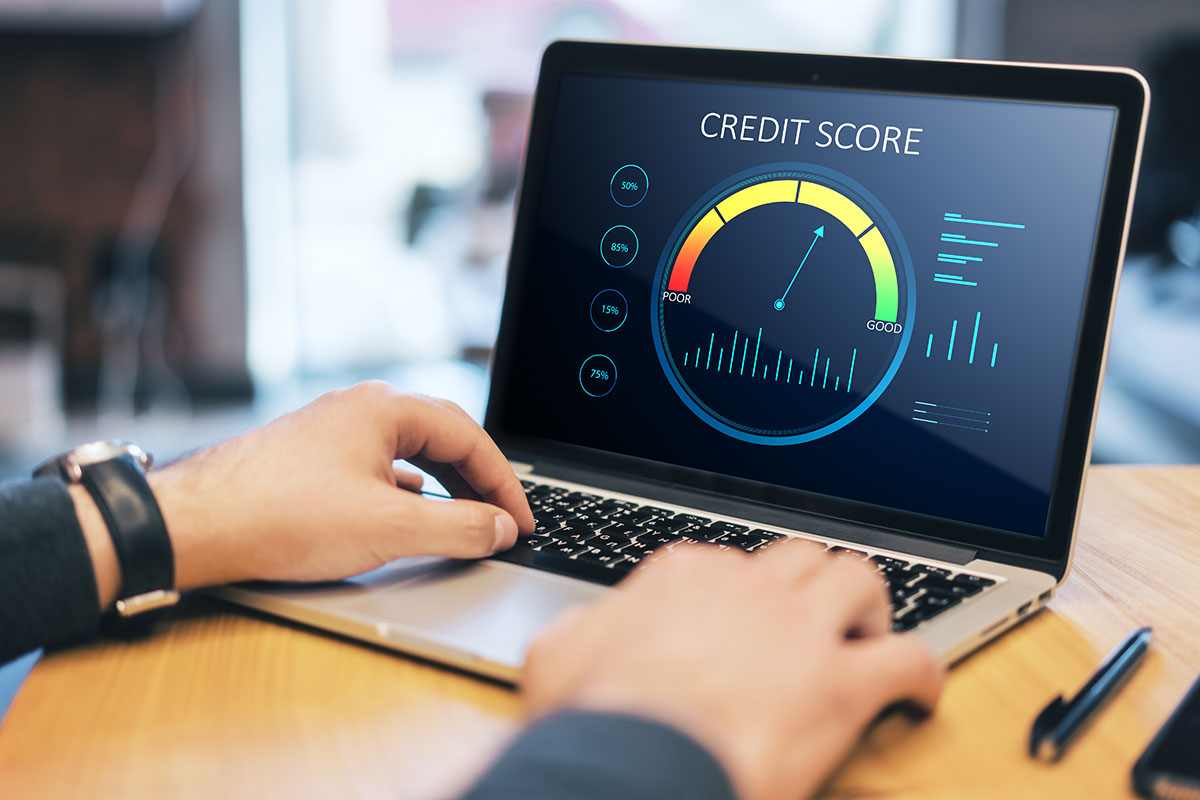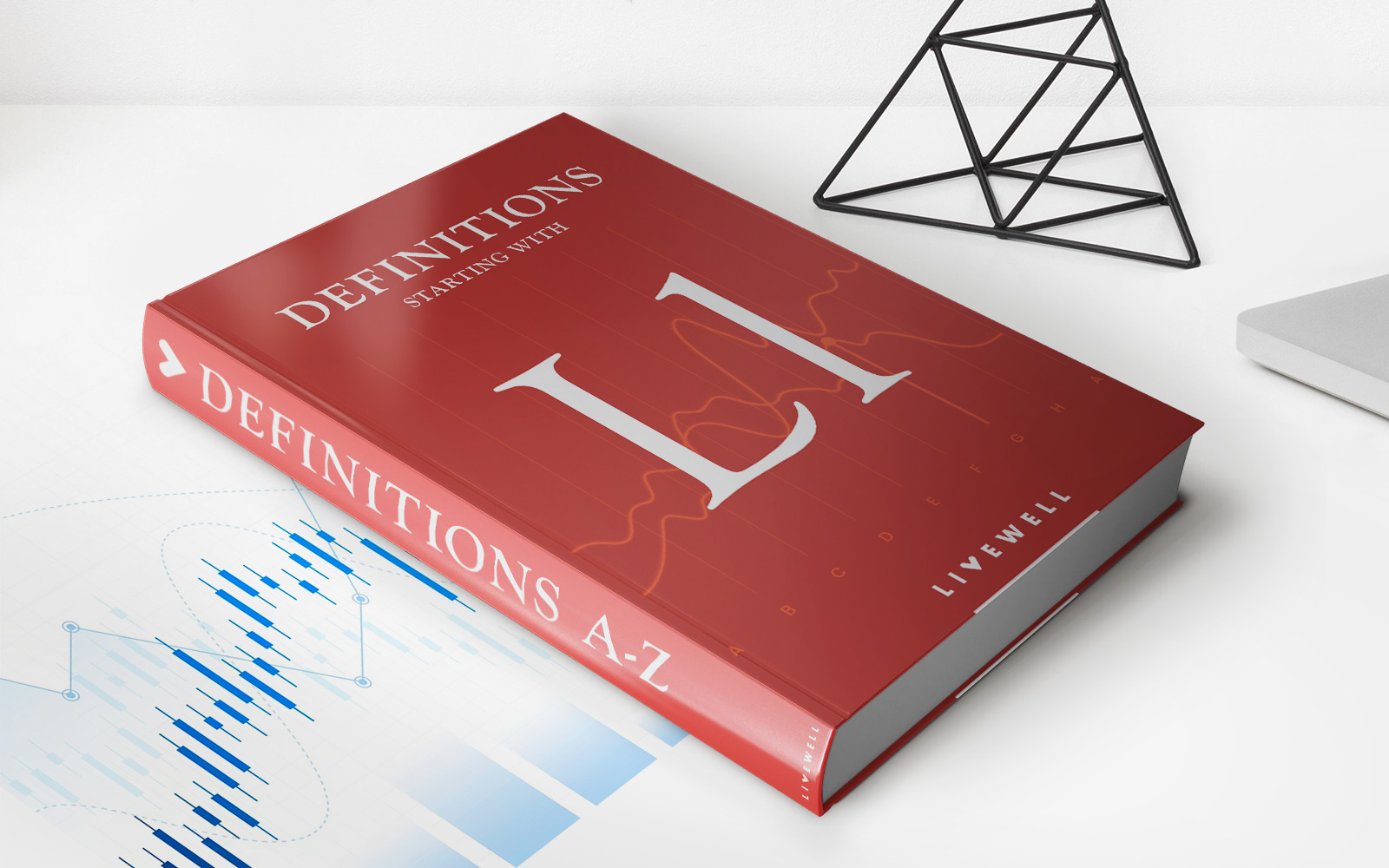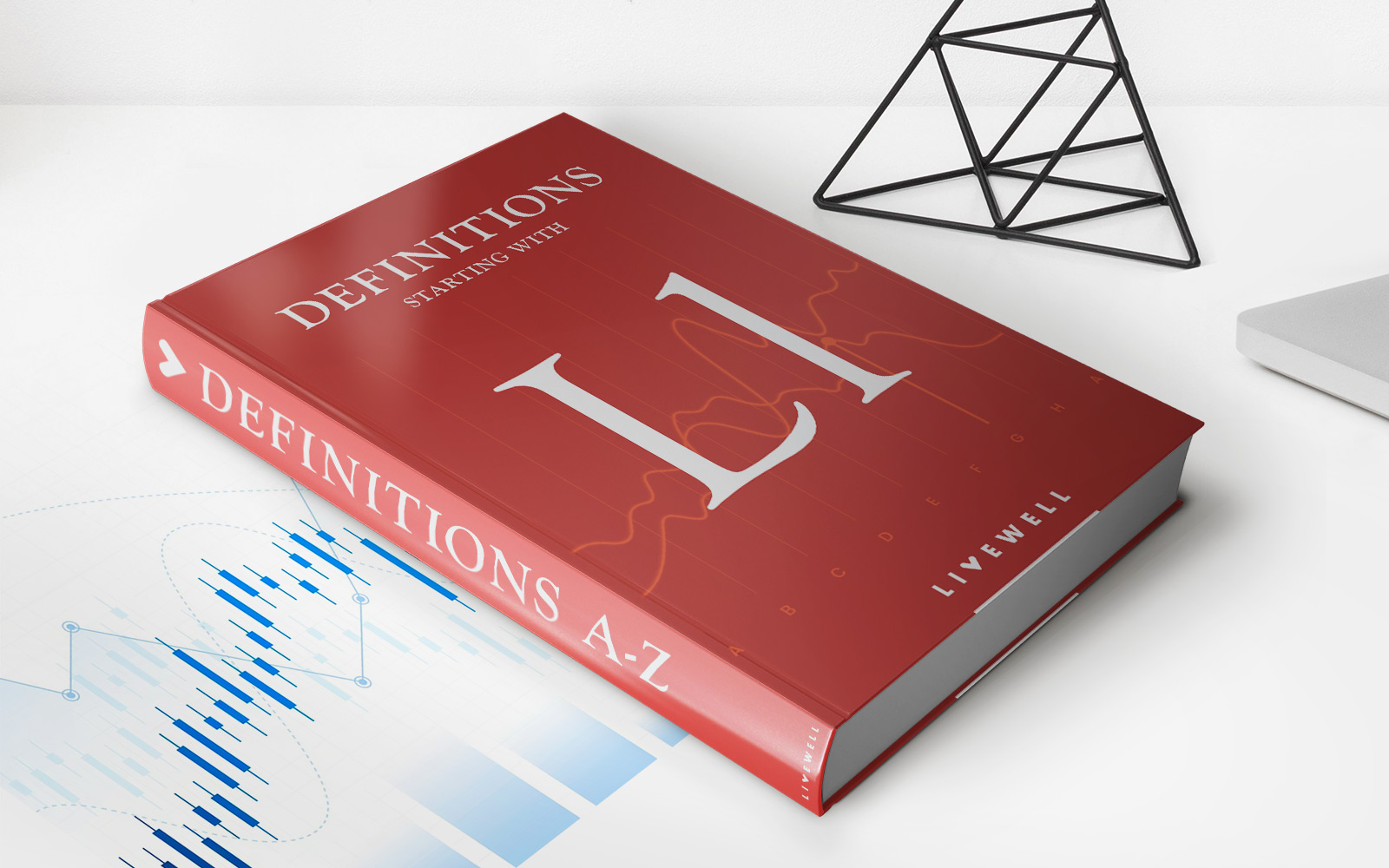Home>Finance>How To Get Out Of Debt With No Money And Bad Credit


Finance
How To Get Out Of Debt With No Money And Bad Credit
Published: January 13, 2024
Learn effective strategies to get out of debt, even with no money and bad credit. Take control of your finances with our expert tips and advice on finance.
(Many of the links in this article redirect to a specific reviewed product. Your purchase of these products through affiliate links helps to generate commission for LiveWell, at no extra cost. Learn more)
Table of Contents
- Introduction
- Assessing your current financial situation
- Creating a budget
- Cutting down expenses
- Increasing your income
- Negotiating with creditors
- Exploring debt consolidation options
- Seeking help from non-profit credit counseling agencies
- Prioritizing debt repayments
- Making minimum payments
- Utilizing balance transfers
- Considering debt settlement
- Exploring bankruptcy as a last resort
- Staying motivated and disciplined
- Building good credit history
- Conclusion
Introduction
Debt can be a burdensome and overwhelming aspect of many people’s lives. Whether it’s due to unexpected expenses, medical bills, or poor financial decisions, being in debt can feel like an inescapable cycle. And when you have no money and bad credit, it can make the situation seem even more hopeless.
But the good news is that getting out of debt, even with limited financial resources and a less-than-perfect credit score, is not impossible. It requires determination, discipline, and a strategic approach. By following the right steps and making smart financial choices, you can gradually work towards becoming debt-free.
In this article, we will explore effective strategies to help you get out of debt when you have no money and bad credit. These strategies include assessing your current financial situation, creating a budget, cutting down expenses, increasing your income, negotiating with creditors, exploring debt consolidation options, seeking help from non-profit credit counseling agencies, prioritizing debt repayments, making minimum payments, utilizing balance transfers, considering debt settlement, exploring bankruptcy as a last resort, staying motivated and disciplined, and building good credit history.
By implementing these strategies and staying committed to your financial goals, you can take control of your debt and start building a brighter financial future.
Assessing your current financial situation
The first step towards getting out of debt is to assess your current financial situation. This involves taking a close look at your income, expenses, and debt obligations.
Start by calculating your total income, including any regular paychecks, side hustles, or passive income streams. Next, list down all your expenses, including fixed costs such as rent or mortgage, utilities, transportation, and groceries, as well as discretionary expenses like dining out or entertainment.
Once you have a clear idea of your income and expenses, it’s time to examine your debt. Make a list of all your outstanding debts, including credit card balances, personal loans, student loans, and any other financial obligations. Take note of the interest rates, minimum monthly payments, and the total amount owed for each debt.
Additionally, assess your credit score and credit history to get a sense of how potential lenders and creditors view your financial situation. While having bad credit may limit your options, it’s important to have a thorough understanding of where you stand.
The purpose of assessing your current financial situation is to gain clarity and identify areas where you can make improvements. It will help you determine how much money you can allocate towards debt repayment and which debts should be prioritized.
Furthermore, evaluating your financial standing will allow you to set realistic goals and create a tailored plan to effectively tackle your debt. It will also provide you with a benchmark to measure your progress along the way.
Remember, being honest and thorough in this assessment is crucial for developing an effective debt repayment strategy. It may be uncomfortable to face the reality of your financial situation, but taking this step is essential for your long-term financial success.
Creating a budget
Creating a budget is a fundamental step in managing your finances and getting out of debt. A budget allows you to track your income and expenses, identify areas where you can cut back, and allocate your resources effectively.
To start, list all your sources of income and determine the total amount of money you have coming in each month. This could include your salary, freelance work, rental income, or any other sources of income.
Next, analyze your expenses and categorize them into fixed expenses (such as rent or mortgage, utilities, and transportation) and variable expenses (such as groceries, dining out, entertainment, and discretionary spending).
Once you have a clear picture of your income and expenses, compare them to see if your expenses exceed your income. If that’s the case, you will need to make some adjustments to ensure that your budget is balanced.
Identify areas where you can cut back on expenses. This could mean reducing unnecessary discretionary spending, negotiating bills to lower your monthly payments, or finding ways to save on utilities and other regular expenses.
Allocate a portion of your budget to debt repayment. Look at your outstanding debts and determine how much you can afford to put towards paying them off each month. Prioritize high-interest debts first, as they cost you more in the long run.
Stick to your budget as closely as possible. Track your spending, review your budget regularly, and make adjustments as needed. Being mindful of your spending habits and staying disciplined are key to successfully managing your finances and accelerating your debt repayment journey.
Consider using budgeting apps or tools to help you track your income and expenses. These tools can provide visual representations of your financial situation, send reminders for bill payments, and help you stay on top of your budget.
Remember, creating a budget is not meant to restrict your lifestyle entirely. It is about making informed financial decisions and prioritizing your financial goals. By closely following your budget, you will gradually gain control over your spending and make significant progress towards becoming debt-free.
Cutting down expenses
When you’re working towards getting out of debt with limited finances and bad credit, cutting down expenses is an important strategy to free up more money for debt repayment.
Start by carefully reviewing your monthly expenses and identifying areas where you can make adjustments. Look for opportunities to reduce costs without compromising your basic needs and well-being.
Consider the following strategies to help you trim your expenses:
- Focus on essentials: Differentiate between needs and wants. Prioritize your basic needs, such as housing, utilities, and groceries, over non-essential items or activities. Cut back on unnecessary expenses like dining out, entertainment, and luxury purchases.
- Meal planning and cooking at home: Eating out can quickly add up and strain your budget. Plan your meals in advance and prepare meals at home. This not only helps you save money but also allows for healthier eating habits.
- Reduce utility costs: Look for ways to conserve energy and reduce utility bills. Turn off lights and electronics when not in use, adjust the thermostat to save on heating and cooling costs, and consider using energy-efficient appliances and light bulbs.
- Review subscriptions and memberships: Assess your subscriptions, such as streaming services, gym memberships, or magazine subscriptions. Cancel any that you rarely use or can live without. Alternatively, look for cheaper alternatives or consider sharing costs with friends or family members.
- Shop smartly: Compare prices, use coupons or discounts, and be mindful of sales when making purchases. Consider buying generic brands instead of branded items, and avoid impulse buying.
- Transportation costs: Evaluate your transportation expenses. Consider carpooling, using public transportation, or walking or biking when feasible. If you have multiple vehicles, consider downsizing to reduce fuel, insurance, and maintenance costs.
- Lower your housing costs: If possible, explore ways to reduce your housing expenses. This could include downsizing to a smaller home or finding a more affordable rental property. Alternatively, consider taking on a roommate to share housing costs.
Remember, cutting down expenses requires discipline and a commitment to your financial goals. It may involve some sacrifices and adjustments to your lifestyle, but the long-term benefits outweigh the temporary discomfort. Each dollar you save can be applied towards paying off your debts and gaining financial freedom.
Increasing your income
When you have no money and bad credit, increasing your income can significantly accelerate your journey to getting out of debt. While it may require some effort and creativity, there are several strategies you can employ to boost your earnings.
Consider the following options to increase your income:
- Take on a side gig or freelance work: Utilize your skills and talents to earn extra money outside of your regular job. Offer your services as a freelance writer, graphic designer, virtual assistant, or any other field where you have expertise.
- Start a small business: If you have an entrepreneurial spirit, consider starting a small business. It could be an online store, a consulting service, or a local service that fulfills a need in your community. Be sure to carefully plan and assess the viability of your business idea.
- Find online work opportunities: Explore online platforms that offer remote work opportunities. These can range from online tutoring and transcription services to website testing and freelance tasks. Such platforms provide flexibility and the potential to earn income from the comfort of your home.
- Monetize your hobbies and talents: Look for ways to turn your hobbies or talents into income sources. For example, if you enjoy crafting, you can sell your creations online. If you’re passionate about photography, consider offering your services for events or stock photography websites.
- Seek additional shifts or overtime at work: If your current job allows, inquire about opportunities for additional shifts or overtime. This can increase your monthly income and help you earn extra money to put towards your debt payments.
- Rent out a spare room or property: If you have a spare room or property, consider renting it out for extra income. This can be done through platforms like Airbnb or by finding long-term tenants. Just be sure to follow local laws and regulations.
- Explore gig economy opportunities: The gig economy offers a wide range of temporary and flexible work options. From ride-sharing services to delivery services, there are multiple platforms where you can sign up and earn income on your own schedule.
Increasing your income requires dedication, perseverance, and a willingness to step out of your comfort zone. Be proactive in seeking additional work opportunities and stay committed to putting the extra income towards your debt payments. Remember, the more you can increase your income, the faster you will be able to pay off your debts and achieve financial freedom.
Negotiating with creditors
When you’re in debt and struggling to make payments, reaching out to your creditors to negotiate can be a helpful step in managing your financial situation. While it may seem intimidating, many creditors are willing to work with you to find a solution that works for both parties.
Here are some strategies for negotiating with creditors:
- Contact your creditors: Reach out to your creditors and explain your situation honestly. Let them know that you’re facing financial difficulties and are committed to resolving your debts. It’s important to communicate early, before you miss any payments.
- Request lower interest rates: High interest rates can make it challenging to pay off your debts. Ask your creditors to lower the interest rates on your accounts. Sometimes, if you have a good payment history, they may be willing to accommodate your request.
- Enroll in hardship programs: Some creditors have hardship programs in place to assist customers going through financial difficulties. These programs may offer reduced payment plans, interest rate reductions, or temporary forbearance options. Inquire about the availability of these programs and see if you qualify.
- Explore debt settlement options: If you’re struggling to make your payments and the debt amount is too high to manage, you may consider exploring debt settlement. This involves negotiating with your creditors to pay a reduced lump-sum amount that will be considered as full payment for the debt.
- Seek professional help: If negotiating with your creditors seems overwhelming or if you’re not making progress, consider seeking help from a reputable credit counseling agency or a debt settlement company. These professionals can negotiate on your behalf and provide guidance on the best course of action.
During the negotiation process, it’s important to keep detailed records of all communications with your creditors. Keep track of any agreements, changes in terms, or payment arrangements that are made. This will help ensure that both parties are clear on the terms and can address any issues that may arise in the future.
Remember, not all creditors may be willing to negotiate, but it’s worth making an effort. By initiating communication and demonstrating your commitment to resolving your debts, you increase your chances of finding a solution that works for both you and your creditors.
Exploring debt consolidation options
Debt consolidation is a strategy that combines multiple debts into a single loan or payment, making it easier to manage and potentially lowering your interest rates. It can be a helpful option when you have multiple debts with high interest rates and want to simplify your repayment process.
Here are some debt consolidation options to consider:
- Personal loans: One common method of debt consolidation is taking out a personal loan to pay off your existing debts. These loans typically have lower interest rates than credit cards and allow you to streamline your payments into a single monthly installment. It’s important to ensure that the personal loan terms are favorable and that the overall cost of the loan is lower than what you are currently paying on your individual debts.
- Balance transfer credit cards: Another option is to transfer your high-interest credit card balances to a new credit card with a lower interest rate. Many credit card companies offer promotional periods with 0% interest on balance transfers, giving you an opportunity to make significant progress in paying off your debt without accruing additional interest. However, it’s crucial to read the terms and conditions carefully, as there may be balance transfer fees or higher interest rates after the promotional period ends.
- Home equity loans or lines of credit: If you own a home, you may consider using a home equity loan or line of credit to consolidate your debts. By using the equity in your home as collateral, you can secure a loan with a lower interest rate. However, it’s important to be cautious as this option puts your home at risk if you’re unable to make the payments.
- Debt management plans: Working with a reputable credit counseling agency, you can enroll in a debt management plan (DMP). These plans allow you to consolidate your debts into a single monthly payment managed by the agency. The agency negotiates with your creditors to potentially lower interest rates and develop a payment plan that fits your budget.
- Debt consolidation loans: Some financial institutions offer specific debt consolidation loans designed to help borrowers simplify their repayment process. These loans are specifically tailored for consolidation purposes and may offer more favorable terms than traditional personal loans.
Before choosing a debt consolidation option, it’s important to evaluate the terms and costs involved. Consider factors such as interest rates, fees, repayment terms, and the impact on your credit score. It’s also important to address the underlying behaviors that led to debt in the first place to avoid falling into the same cycle in the future.
Debt consolidation can help you streamline your debt repayment and potentially save money on interest. However, it’s important to carefully assess your financial situation and consult with a financial advisor or credit counselor to determine the best consolidation option for your specific needs.
Seeking help from non-profit credit counseling agencies
When you’re facing financial difficulties and need assistance in managing your debt, seeking help from non-profit credit counseling agencies can be a beneficial option. These organizations provide guidance, support, and resources to help you navigate your way out of debt and improve your financial well-being.
Here’s how non-profit credit counseling agencies can assist you:
- Financial assessment: Non-profit credit counseling agencies will conduct a thorough analysis of your financial situation. They will review your income, expenses, and debts to gain a comprehensive understanding of your financial standing.
- Budgeting and financial education: Credit counselors will work with you to create a personalized budget that aligns with your income and expenses. They will provide financial education and guidance on managing money more effectively.
- Debt management plans: If appropriate, credit counselors can help you enroll in a debt management plan (DMP). These plans consolidate your debts into a single monthly payment managed by the credit counseling agency. They can negotiate with creditors on your behalf to potentially lower interest rates and develop a feasible repayment plan.
- Credit score improvement: Credit counselors can provide strategies to improve your credit score over time. They will educate you on factors that impact your credit score and guide you in establishing a positive credit history.
- Financial resources and tools: Non-profit credit counseling agencies have a range of resources and tools available to help you manage your finances effectively. They may provide online budgeting tools, debt calculators, financial literacy materials, and other educational resources.
- Debt repayment options: Credit counselors can explore various debt repayment options with you, such as debt consolidation, debt settlement, or bankruptcy. They will assess your unique circumstances and help you make informed decisions about the best course of action.
One of the key advantages of working with non-profit credit counseling agencies is their commitment to providing unbiased advice and support. Unlike for-profit debt relief companies, non-profit agencies prioritize your best interests and aim to help you achieve long-term financial stability.
It’s important to do your research when selecting a non-profit credit counseling agency. Look for organizations that are accredited by reputable industry associations and have a proven track record of helping individuals and families overcome their financial challenges.
Remember that seeking help from a credit counseling agency does not guarantee that your debts will be eliminated. However, it can provide you with the knowledge, tools, and support necessary to effectively manage your debts, improve your financial habits, and work towards a debt-free future.
Prioritizing debt repayments
When you’re working towards getting out of debt, it’s important to prioritize your repayments strategically. By focusing on certain debts first, you can minimize interest charges and make significant progress towards becoming debt-free.
Here are some guidelines for prioritizing your debt repayments:
- High-interest debts: Start by addressing high-interest debts such as credit cards or payday loans. These debts typically have higher interest rates, which means you end up paying more in interest over time. Paying off high-interest debts first can save you money in the long run.
- Debts with late fees or penalties: If you have any debts that come with late fees or penalties for missed payments, it’s important to prioritize them. By paying these debts off first, you can avoid accumulating additional fees and charges.
- Past-due accounts: If you have any accounts that are already past due, it’s crucial to bring them current as soon as possible. Late payments can have a negative impact on your credit score and make it harder to access credit in the future.
- Secured debts: Secured debts, such as a mortgage or car loan, are tied to an asset. While it’s important to make regular payments on these debts, they may have lower interest rates compared to unsecured debts. If you’re struggling financially, consult with your lender to explore options for temporary relief or refinancing.
- Other unsecured debts: After addressing high-interest and past-due debts, focus on paying off other unsecured debts, such as personal loans or medical bills. Allocate extra funds towards these debts and consider making additional payments whenever possible.
While it’s important to prioritize certain debts, it’s also essential to continue making at least minimum payments on all debts to maintain a good payment history and avoid penalties.
Consider using the debt avalanche or debt snowball method to further streamline your repayment strategy. With the debt avalanche method, you prioritize debts based on interest rates, paying off the highest-rate debt first. With the debt snowball method, you tackle debts starting with the smallest balance first, regardless of interest rates. Choose the method that aligns with your financial goals and motivates you to stay on track.
Remember, prioritizing debt repayments requires discipline and commitment. Stay focused on your financial goals, allocate any extra funds towards debt repayment, and celebrate your progress along the way. By strategically prioritizing your debt repayments, you can make steady progress towards eliminating your debts and achieving financial freedom.
Making minimum payments
When you’re facing financial challenges and struggling to make larger debt repayments, making minimum payments becomes an important strategy to maintain your financial stability. While it may take longer to pay off your debts, making minimum payments ensures that you’re meeting your financial obligations and avoiding late fees or penalties.
Here are some key considerations when making minimum payments:
- Meeting your contractual obligations: Minimum payments represent the minimum amount required by your lenders or creditors to fulfill your contractual obligations. By making at least the minimum payment, you show your commitment to repaying your debts and maintaining a good payment history.
- Avoiding late fees and penalties: Failing to make minimum payments can result in late fees or penalties, increasing your overall debt burden. It’s important to prioritize at least the minimum payment for each debt to avoid these additional charges and maintain a positive relationship with your creditors.
- Preserving your credit score: Making minimum payments is particularly crucial for preserving your credit score. Payment history is a significant factor in determining your creditworthiness, and consistently making at least the minimum payment on time demonstrates your financial responsibility to potential lenders.
- Staying current on secured debts: If you have secured debts, such as a mortgage or a car loan, making at least the minimum payment is essential to maintain ownership and prevent repossession or foreclosure. Falling behind on secured debts can have serious consequences for your financial stability and housing situation.
- Managing your cash flow: Making minimum payments can help you manage your cash flow and ensure that you have enough funds to cover other essential expenses, such as housing, utilities, and food. By meeting your minimum payment obligations, you can maintain a basic level of financial stability while working towards more substantial debt repayments when possible.
While making minimum payments is a crucial temporary strategy, it’s important to note that paying only the minimum may prolong your repayment period and increase the total interest you’ll pay over time. Therefore, it’s advisable to allocate any additional funds towards debt repayment whenever possible.
As your financial situation improves, strive to increase your debt repayments beyond the minimum requirement. This way, you can accelerate your debt payoff and reduce the overall interest you’ll incur. Consider implementing a strategy, such as the debt avalanche or debt snowball method, to prioritize specific debts and make the most of your debt repayments.
Remember, making minimum payments is about maintaining stability and fulfilling your financial obligations. It’s a short-term strategy to navigate challenging financial situations while working towards the goal of becoming debt-free. Stay disciplined, monitor your progress, and celebrate small victories along the way as you continue on your journey towards financial freedom.
Utilizing balance transfers
Utilizing balance transfers can be a smart strategy to consolidate and manage your credit card debt more effectively. A balance transfer involves moving the outstanding balance from one credit card to another with a lower or 0% introductory interest rate for a specified period.
Here are some key considerations when utilizing balance transfers:
- Lower interest rates: One of the primary benefits of a balance transfer is taking advantage of lower interest rates. By transferring your balance to a credit card with a promotional 0% or lower interest rate, you can save money on interest payments and potentially pay off your debt faster.
- Introductory offer period: When considering a balance transfer, pay attention to the duration of the introductory offer. This period typically ranges from a few months to a year or more, during which the transferred balance has a lower or 0% interest rate. Aim to pay off your debt before the promotional rate expires to avoid higher interest charges.
- Transfer fees: Keep in mind that many balance transfer credit cards charge transfer fees, typically a percentage of the balance being transferred. Factor in these fees when deciding if a balance transfer is cost-effective for your situation. Look for credit cards with low or no transfer fees to minimize additional costs.
- Credit card approval and limits: To qualify for a balance transfer credit card, you need to meet certain eligibility criteria, including a good credit score. Additionally, you must be mindful of the credit limit on the new card, as it should be sufficient to accommodate the transferred balance.
- Payment allocation: When you transfer your balances, ensure that your payments are allocated towards the transferred balance. Some credit cards allocate payments towards the lower-interest promotional balance first, while the higher-rate balance continues to accrue interest. Contact your credit card company to clarify their payment allocation policy.
- Responsible credit card usage: Utilizing balance transfers effectively requires responsible credit card usage. Avoid adding new charges to the card, as additional purchases may accrue interest at a higher rate. Use the balance transfer opportunity to pay down your debt and improve your financial situation.
- Closing the original account: While you may be inclined to close the original credit card account after transferring the balance, think carefully before doing so. Closing accounts can impact your credit utilization ratio and credit history, potentially affecting your credit score. Discuss the pros and cons with a financial advisor or credit counselor before deciding.
Balance transfers can provide a valuable opportunity to save money on interest payments and simplify your debt repayments. However, it’s essential to do your research, compare offers, and evaluate the costs and benefits. Explore credit cards with favorable terms, such as longer promotional periods and low transfer fees.
Remember, a balance transfer is just one tool in your debt repayment strategy. It’s crucial to address the underlying issues that led to the debt and develop responsible financial habits to avoid falling back into debt in the future. Use the balance transfer opportunity wisely and diligently work towards becoming debt-free.
Considering debt settlement
When facing overwhelming debt and struggling to make payments, debt settlement may be a viable option to consider. Debt settlement involves negotiating with your creditors to pay a reduced lump-sum amount that is considered as full payment for the debt.
Here are important factors to consider when contemplating debt settlement:
- Financial hardship: Debt settlement is typically pursued when you are experiencing significant financial hardship and are unable to repay your debts in full. It’s crucial to assess your financial situation and determine if debt settlement is the best solution for your specific circumstances.
- Impact on credit score: Debt settlement can have a negative impact on your credit score. When you settle a debt, it will be reported on your credit report, which can lower your credit score and remain on your credit history for several years. This can affect your ability to access credit in the future.
- Creditors’ willingness to negotiate: Not all creditors are willing to participate in debt settlement negotiations. Some may prefer to collect the full amount owed or offer alternative repayment options. It’s important to contact your creditors directly to understand their willingness to negotiate and explore any settlement options they may have available.
- Tax implications: In certain cases, forgiven debt through settlement may be considered taxable income by the IRS. It’s important to consult with a tax professional to understand the potential tax implications of debt settlement in your specific situation.
- Financial and legal assistance: Many individuals choose to work with a reputable debt settlement company or an attorney who specializes in debt settlement to navigate the process. These professionals can guide you through the negotiations and help ensure that you’re making informed decisions.
Debt settlement should be considered as a last resort when other options, such as budgeting, debt consolidation, or negotiating with creditors, have been explored. It’s important to exhaust all alternative solutions before pursuing debt settlement.
When pursuing debt settlement, it’s crucial to approach the process with realistic expectations and to have clear communication with your creditors. Understand that debt settlement may take time, and it’s important to save money diligently while negotiating with your creditors.
Remember that debt settlement may not be suitable for everyone. It’s important to carefully evaluate your financial situation and consult with professionals to determine the best course of action for your specific circumstances.
Financial challenges can be overwhelming, but with careful consideration, proactive communication, and the right professional guidance, debt settlement can provide an opportunity to regain control of your financial situation and work towards a debt-free future.
Exploring bankruptcy as a last resort
When facing severe financial distress with no feasible options for debt relief, exploring bankruptcy may be a last resort to consider. Bankruptcy provides individuals and businesses with a legal process to address overwhelming debts and make a fresh financial start.
Here are some important factors to consider when exploring bankruptcy:
- Types of bankruptcy: There are different types of bankruptcy, such as Chapter 7 and Chapter 13, each with its own eligibility criteria and implications. Chapter 7 involves liquidation of assets to pay off debts, while Chapter 13 involves creating a repayment plan to gradually pay off debts over a specified period.
- Implications on credit score: Bankruptcy has a significant negative impact on your credit score. It will remain on your credit report for several years, making it difficult to access credit in the future. However, over time, as you rebuild your financial standing, it is possible to improve your credit score.
- Eligibility requirements: Qualifying for bankruptcy depends on various factors, including your income, assets, and the type of bankruptcy you’re considering. It’s essential to consult with a bankruptcy attorney to assess your eligibility and understand the requirements specific to your situation.
- Legal and financial consequences: Bankruptcy carries legal and financial consequences that can affect your personal and professional life. It’s important to understand the impact on your assets, employment, and future financial opportunities, and consult with professionals to navigate the legal aspects of the process.
- Alternatives to bankruptcy: Before considering bankruptcy, explore alternative options such as debt consolidation, negotiation with creditors, or debt management plans through credit counseling agencies. Bankruptcy should be reserved as a last resort when other options have been exhausted.
- Seek professional guidance: Bankruptcy is a complex legal process, and it’s crucial to consult with a qualified bankruptcy attorney. They can help you assess your financial situation, understand the implications of bankruptcy, and guide you through the necessary steps.
When exploring bankruptcy, it’s important to approach the process with full disclosure of your financial situation. Be prepared to provide accurate and complete information to the court and cooperate with the necessary procedures. Understand that bankruptcy is a formal legal proceeding that requires strict adherence to the rules and regulations established by the bankruptcy laws in your jurisdiction.
Ultimately, the decision to pursue bankruptcy should be based on a careful assessment of your financial circumstances, weighing the benefits and consequences. It’s a decision that can have long-lasting implications on your financial future, so it’s crucial to seek professional guidance and fully understand the ramifications before proceeding.
Financial difficulties can be overwhelming, but considering bankruptcy as a last resort can offer a path to financial relief and a fresh start. Take the time to explore all available options, seek professional advice, and make an informed decision based on your unique situation.
Staying motivated and disciplined
When working towards becoming debt-free, staying motivated and disciplined is essential for long-term success. It’s normal to face challenges and setbacks along the way, but with the right mindset and strategies, you can maintain your focus and stay on track towards achieving your financial goals.
Here are some tips to help you stay motivated and disciplined throughout your debt repayment journey:
- Set clear and specific goals: Define your financial goals and make them as specific as possible. Whether it’s paying off a certain amount of debt within a specific timeframe or becoming completely debt-free, having defined goals will give you a clear target to work towards.
- Create a visual reminder: Visualize your progress by creating a visual reminder of your debt repayment journey. This could be a debt tracker chart or a vision board that represents your goals. Place it somewhere visible, such as on your fridge or by your workspace, as a daily reminder of what you’re working towards.
- Celebrate milestones: Break your debt repayment journey into smaller milestones and celebrate each achievement along the way. It’s important to acknowledge your progress, whether it’s paying off a specific debt or reaching a certain percentage of your overall goal. Rewards and celebrations can provide a positive boost and keep you motivated.
- Find support: Surround yourself with a supportive network of friends, family, or online communities who understand and support your financial goals. Sharing your journey with others who are going through similar experiences can provide encouragement, accountability, and a sense of community.
- Seek inspiration: Read personal finance books, listen to podcasts, or follow social media accounts that inspire and motivate you to stay on your debt-free journey. Engage with content that shares success stories or provides practical strategies for managing finances. This can help you stay focused on your goals and reinforce positive financial habits.
- Implement self-care practices: Managing debt can be emotionally and mentally challenging. Prioritize self-care and well-being by engaging in activities that reduce stress and promote overall wellness. This could include exercise, meditation, spending time with loved ones, or pursuing hobbies that bring you joy.
- Track your progress: Keep track of your debt repayment progress regularly. Review your budget, check your debt balances, and update your financial records periodically. Seeing your progress over time can be motivating and act as a reminder of your commitment to becoming debt-free.
- Stay committed to your budget: Consistently follow your budget and avoid unnecessary expenses. Practice mindful spending and make conscious decisions about your purchases. Remember that every dollar saved can contribute to your debt repayment goals.
- Focus on the benefits of being debt-free: Remind yourself of the benefits and freedom that come with being debt-free. Visualize a future where you no longer have the burden of debt and can allocate your money towards your dreams, goals, and financial security.
Remember, staying motivated and disciplined requires dedication and a positive mindset. Embrace the journey and view it as an opportunity to improve your financial habits and build a secure future. By staying committed to your goals and implementing these strategies, you can overcome challenges and successfully achieve a debt-free life.
Building good credit history
Building a good credit history is crucial for your financial well-being and future financial opportunities. Lenders, landlords, and even potential employers use your credit history to gauge your financial responsibility. Establishing and maintaining good credit habits can help you access better interest rates, secure loans, and achieve your financial goals.
Consider the following strategies to build a strong credit history:
- Pay bills on time: Consistently making on-time payments is one of the most crucial steps in building good credit. Late or missed payments can significantly impact your credit score and remain on your credit report for several years. Set up automatic payments or reminders to ensure you do not miss any payment deadlines.
- Manage credit card responsibly: Use credit cards wisely and within your means. Avoid maxing out your credit cards and aim to keep your credit utilization ratio (the percentage of your available credit you are using) below 30%. Pay off your credit card balances in full each month to avoid interest charges.
- Diversify your credit mix: Having a diverse mix of credit can positively impact your credit score. This includes a combination of credit cards, installment loans (such as auto loans or personal loans), and a mortgage, if applicable. However, only take on credit that you can comfortably manage and avoid applying for numerous accounts within a short period.
- Regularly check your credit report: Review your credit report at least once a year to ensure its accuracy and to identify any potential errors. Look for any fraudulent activity or discrepancies that may impact your credit history. You are entitled to a free annual credit report from each of the major credit reporting agencies.
- Keep credit accounts open: Length of credit history is an essential factor in determining your credit score. Keeping your oldest credit accounts open, even if you don’t use them frequently, can positively impact your credit history. Closing accounts can shorten your credit history and potentially lower your credit score.
- Apply for credit responsibly: Be cautious when applying for new credit. Multiple credit inquiries within a short period can negatively impact your credit score. Only apply for credit when you genuinely need it and shop around for the best interest rates without applying to multiple lenders simultaneously.
- Limit new credit accounts: Opening multiple new credit accounts within a short span can raise concerns about your borrowing habits and financial stability. Avoid the temptation of opening unnecessary credit accounts and only take on new credit when necessary.
- Seek professional guidance if needed: If you’re struggling to build or repair your credit, consider seeking assistance from a reputable credit counseling agency or financial advisor. They can provide personalized guidance and help you develop a plan to improve your credit history.
Building good credit history takes time and discipline. Be patient, monitor your credit regularly, and consistently practice responsible credit habits. With time, dedication, and responsible financial behavior, you can establish a positive credit history and create a solid foundation for your financial future.
Conclusion
Getting out of debt when you have no money and bad credit may seem challenging, but it is definitely possible with the right strategies and mindset. By following the steps outlined in this article, you can begin your journey towards financial freedom and regain control of your financial future.
Assessing your current financial situation is the starting point. Take a thorough look at your income, expenses, and debts to understand where you stand. Creating a budget will help you manage your finances effectively and allocate funds towards debt repayment.
Cutting down expenses and increasing your income are important steps to free up more money for debt payments. Negotiating with creditors and exploring debt consolidation options can provide opportunities to reduce interest rates, consolidate debts, and create manageable repayment plans.
If necessary, seeking help from non-profit credit counseling agencies can provide guidance, resources, and support. Prioritizing your debt repayments and making at least minimum payments is crucial to maintain stability and avoid additional fees and penalties.
Utilizing balance transfers, considering debt settlement, and exploring bankruptcy are options that should be considered as last resorts, carefully weighing the benefits and consequences in your specific situation.
Throughout your debt repayment journey, staying motivated and disciplined is key. Set clear goals, celebrate milestones, find support, and prioritize self-care to maintain focus and momentum. Building good credit history is essential for future financial opportunities, so practice responsible credit habits and regularly monitor your credit report.
Remember, becoming debt-free requires dedication, perseverance, and making informed financial decisions. You have the power to change your financial situation and create a brighter future. Keep moving forward, stay committed to your goals, and embrace the journey towards a debt-free life.














